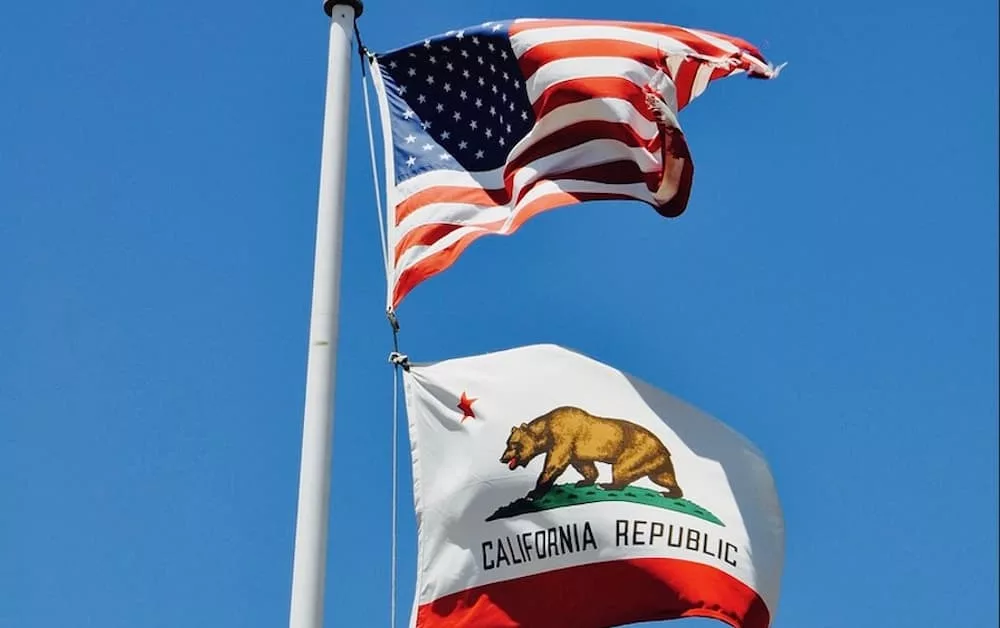Introduction
Over the past few years, the California Consumer Privacy Act (CCPA) has gained significant traction in the privacy legislation conversation. This act has been designed to grant more power to California consumers by allowing them greater control over the personal information businesses collect from them. Compared to the General Data Protection Regulation (GDPR), the CCPA is a unique piece of legislation with its own set of provisions and requirements.
The CCPA has far-reaching effects on consumers and companies, including but not limited to, the right to access, delete, and opt-out of the sale of personal data. Furthermore, it places a significant burden on businesses under its purview and requires them to comply with various obligations. This article explores the multifaceted effects of the CCPA on both consumers and companies, providing insights into the challenges and opportunities that the CCPA presents.
CCPA vs. GDPR: Key differences
The California Consumer Privacy Act (CCPA) and the General Data Protection Regulation (GDPR) share similar objectives of protecting individuals’ privacy rights, but the two have significant differences. One of the most notable distinctions is that the CCPA exclusively applies to companies conducting business in California, while the GDPR has a more comprehensive territorial scope that extends beyond the European Union.
California residents are afforded enhanced privacy rights under the CCPA, significantly affecting how businesses collect, use, and manage their personal information. As a result, companies operating in California must comply with the CCPA’s strict requirements and implement measures to safeguard the privacy of their customers.
Consumer control through opt-out mechanisms
The California Consumer Privacy Act (CCPA) has introduced a significant change in how businesses handle consumers’ personal information. One major effect of this regulation is providing an opt-out mechanism that allows California residents to control the sale of their personal data. This gives individuals the power to decide how their information is used, which aligns with the increasing demand for privacy.
The opt-out mechanism is a fundamental right that distinguishes the CCPA from other privacy regulations. It provides consumers greater transparency and control over their data while ensuring businesses are held accountable for their data practices. Overall, the CCPA has brought about a much-needed shift towards a more privacy-focused approach, benefiting individuals and businesses.

Opt-in consent and the business’s responsibility
Compared to the opt-out provision, the California Consumer Privacy Act (CCPA) of 2018 introduces the concept of opt-in consent, which requires businesses to obtain explicit permission from consumers before collecting and selling their personal information. This implies that businesses must clearly inform their customers of the data they intend to collect, why they need it, and how they intend to use it before obtaining their consent. The responsibility placed on businesses to secure opt-in consent represents a paradigm shift in the data collection landscape, emphasizing transparency and consumer choice.
With the opt-in consent, customers have more control over their personal data and can only share it with businesses they trust. This way, businesses are compelled to prioritize their customers’ privacy and security and be accountable for the personal data they collect. The CCPA’s opt-in consent represents a significant step towards protecting consumers’ privacy rights and promoting ethical data collection practices.
CCPA compliance challenges for businesses
The California Consumer Privacy Act (CCPA) has introduced several new data privacy requirements that businesses must comply with. One of the most significant challenges small enterprises face is establishing mechanisms that allow consumers to request access to their data. This requires companies to make substantial adjustments to their existing data management practices. The CCPA also requires companies to disclose the categories of personal information they collect, the purposes for which they use it, and the third parties they share it with.
Additionally, businesses must provide consumers with the right to opt-out of the sale of their data. Complying with these new data privacy standards may be a daunting task for smaller companies, given the resource constraints they face. Therefore, it is crucial for businesses to take the necessary steps to meet CCPA requirements and ensure that they comply with the law. By doing so, they can not only avoid costly penalties but also gain the trust and loyalty of their customers by demonstrating their commitment to data privacy.

Impact on tech industry giants
The California Consumer Privacy Act (CCPA) has profoundly impacted the tech industry, which is often at the forefront of data collection. Large companies that engage in extensive data processing activities face a complex landscape of compliance obligations, including the need to honor consumer opt-out requests and ensure compliance with the CCPA’s strict data protection requirements.
As a result, the CCPA is reshaping how technology companies approach privacy and consumer data, with many investing significant resources in new policies, procedures, and infrastructure to meet their obligations under the law. The law’s emphasis on transparency and consumer control over their data has also led to a renewed focus on data governance and management as companies work to build trust with their users and demonstrate their commitment to protecting their privacy.
Legal obligations and consumer rights
The California Consumer Privacy Act (CCPA) is a legal framework that imposes strict obligations on businesses to protect consumer rights regarding using their personal data. The law requires businesses to be transparent about the data they collect, how it is used, and with whom it is shared. It also gives California residents the right to sue businesses for damages in the event of a data breach, which reflects a shift towards greater accountability and consumer protection.
The CCPA underscores the importance of safeguarding consumer data against potential breaches and promotes the responsible use of personal information. By creating a legal obligation for businesses to prioritize consumer privacy, the CCPA sets a precedent for other states and countries to protect individual rights and data security.

Deletion requests and privacy notices
As a prominent feature of the California Consumer Privacy Act (CCPA), consumers can request that businesses delete their personal information. This provision empowers consumers to take control of their data and prompts businesses to establish streamlined procedures for handling deletion requests. To comply with the CCPA, businesses must provide clear and comprehensive privacy notices that effectively communicate their data practices to consumers. Businesses can establish trust with their customers and ensure their personal information is handled responsibly.
Inaccurate personal information and corrections
The California Consumer Privacy Act (CCPA) provides a mechanism for consumers to address the issue of inaccurate personal information. This provision enables consumers to correct any inaccuracies in the data businesses hold. The significance of this mechanism is that it contributes to the accuracy and reliability of personal information. By empowering consumers to correct errors, this provision aligns with the overarching goal of the CCPA – to protect and empower consumers.
Moreover, the correction mechanism enhances the integrity of the data stored by businesses. By ensuring that the data is accurate and up-to-date, businesses can provide better products and services to their customers. This mechanism also helps prevent any potential harm from relying on inaccurate data. Hence, the CCPA’s provision for correcting inaccuracies is a crucial aspect of the act that benefits consumers and businesses alike.
Data brokers and their role
The California Consumer Privacy Act (CCPA) acknowledges the significant role played by data brokers in the data ecosystem. As per the CCPA’s regulations, businesses that buy and sell personal information must adhere to the act, thereby giving consumers greater transparency about the entities involved in the data market.
This increased visibility aims to foster trust between consumers and businesses, enabling consumers to have better control over their personal information. In addition to improving transparency, the CCPA also requires businesses to provide consumers with the right to opt-out of the sale of their personal information, thereby further enhancing consumer privacy rights.
Annual revenue thresholds and business size
The California Consumer Privacy Act (CCPA) sets forth annual revenue benchmarks that dictate its applicability. Specifically, companies with gross annual revenue surpassing $25 million are subject to the CCPA’s regulations. This approach is designed to ensure that the legislation effectively addresses the varying capabilities and obligations of businesses of different sizes.
The revenue threshold is a vital component of the CCPA, as it helps to distinguish between large-scale corporations that impact the privacy of a significant number of consumers and smaller enterprises that may not have the same level of influence. By implementing this mechanism, the CCPA provides a fair and proportionate framework for safeguarding individuals’ privacy rights.

CCPA and federal legislation
In the United States, there is currently no overarching federal law that comprehensively regulates privacy issues. As a result, individual states have taken the initiative to create and enact their own privacy laws, with California leading the way with its California Consumer Privacy Act (CCPA). This state-by-state approach has sparked discussions about the need for a unified, federal-level framework that would streamline privacy regulations across the entire country.
The CCPA’s emergence as a major privacy law underscores the urgency for more comprehensive and robust federal-level privacy laws that would address the growing concerns and challenges related to data privacy and protection. The development of such laws would provide a more consistent and transparent approach to data privacy, while also ensuring greater accountability for companies and organizations that collect, use, and share personal information.
Guardian consent and privacy practices for minors
As the vulnerability of minors is a major concern for many businesses now, the California Consumer Privacy Act (CCPA) has brought forward the concept of guardian consent. According to this, businesses that collect personal information from minors must obtain the consent of a parent or guardian. This emphasizes the significance of safeguarding the privacy of underage individuals, and businesses must ensure that their privacy practices cater to the needs of minors.
This involves taking additional measures to protect the sensitive information of young individuals who may not fully understand the implications of sharing their personal data. Hence, businesses must pay special attention to the privacy practices tailored to minors and focus on establishing a safe and secure environment for younger demographics.
Biometric information and enhanced protections
California’s landmark privacy law, the CCPA, has expanded its scope to include biometric information. This sensitive category of information, which includes unique physical or behavioral characteristics such as fingerprints or facial recognition data, has become increasingly prevalent in our daily lives and necessitates enhanced protection.
Under the CCPA, businesses that collect and use biometric data must implement measures to safeguard it, ensuring that it is not sold or disclosed without the consumer’s explicit consent. This coverage expansion highlights the legislation’s forward-thinking approach to emerging technologies and data types and underscores the importance of protecting individuals’ privacy rights in an ever-changing digital landscape.

California voters and the legislative landscape
The CCPA was born out of a ballot initiative shaped by the public opinion of Californian voters, who demanded greater privacy protection in the digital age. This trend of legislative changes being driven by public opinion is not unique to California; it is a reflection of the growing awareness among consumers of their privacy rights and the need for comprehensive privacy legislation to address the challenges of the digital age. The success of the CCPA serves as a testament to this evolving landscape of privacy expectations and demands, highlighting the need for lawmakers to keep pace with the changing needs of consumers in the digital era.
Exceptions to CCPA compliance
The California Consumer Privacy Act (CCPA) sets forth strict privacy regulations, but it also acknowledges certain exceptions. One such exception is applicable to data that is governed by other federal privacy laws, which may be exempt from some of the CCPA’s provisions. These exceptions highlight the intricacy of the privacy landscape, necessitating a careful and nuanced approach to ensure that various regulatory frameworks can coexist in a cohesive manner. It is essential to understand the interplay between different privacy regulations to navigate this complex landscape effectively and maintain compliance.
Conclusion
The California Consumer Privacy Act (CCPA) marks a major shift in the data protection landscape, giving California residents greater authority over their personal data. This comprehensive legislation governs how businesses collect, store, and share consumer data, and provides Californians with the right to opt-out of the sale of their personal information. To comply with the CCPA, companies must implement measures to safeguard consumer data and provide transparency in their data management practices.
The CCPA also provides consumers with the right to request that their personal information be deleted and imposes penalties on non-compliant businesses. This landmark legislation represents a significant step towards a more privacy-centric approach to data protection and sets an example for other states and potentially the federal government to follow. As more legislation emerges and consumer privacy concerns continue to rise, businesses must prioritize data protection and adopt more transparent and consumer-centric approaches to data management.




